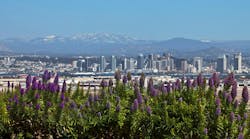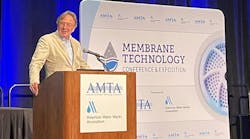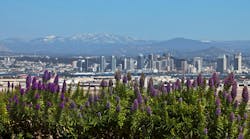SEATTLE, WA, July 30, 2015 -- In light of polluted stormwater runoff threatening water quality in Puget Sound, Seattle Mayor Edward B. Murray today released a draft citywide Green Stormwater Infrastructure Strategy, outlining plans to accelerate green infrastructure approaches for preventing this type of water pollution.
Rainfall rushing off hard surfaces such as roads and parking lots can overwhelm piped drainage systems and cause backups and combined sewer overflows. The runoff also carries pollution directly into creeks, lakes and other waterways.
Green stormwater infrastructure (GSI) prevents overflows and pollution much like a forest would -- by slowing and cleaning the water and either reusing it or allowing it to soak back through the soil. Examples of GSI include roadside bioretention swales and street trees that manage street runoff; rain gardens and cisterns that manage roof runoff; and green roofs and permeable pavement that are self-managing.
"Green stormwater infrastructure is a valuable tool for us, because it helps us prevent stormwater pollution and greens our neighborhoods at the same time," said Murray. "This win-win combination is critically important."
In 2013, Seattle City Council Resolution 31459 challenged Seattle to rely on GSI to manage stormwater runoff wherever possible and set an aggressive target to manage 700 million gallons of stormwater runoff annually with GSI by the year 2025 -- a seven-fold increase over the city's 2012 baseline.
The draft Strategy released today sets an interim goal of managing 400 million gallons of stormwater runoff annually with GSI by the year 2020, summarizes progress to date, outlines a set of strategies and planned investments for accelerating the adoption of GSI in Seattle, and articulates a two-year work plan for City of Seattle departments.
The most significant increases are expected from projects led and funded by Seattle Public Utilities and King County Wastewater Treatment Division, voluntary retrofits on private property, and projects required by Stormwater Code. The Strategy also emphasizes promising opportunities for new partnerships to protect Seattle’s creeks, prevent combined sewer overflows into Puget Sound, and develop integrated transportation projects.
See also:
"Seattle water rates remain steady with $28M stabilization fund due to drought"
"National grocery distributor settles CWA violations with EPA as part of Puget Sound initiative"
###


